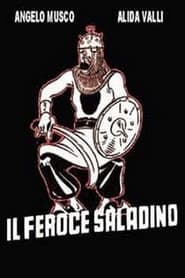detail profile luigi zerbinati
Peran Yang Di Mainkan Luigi Zerbinati
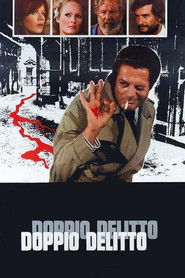 Detective Baldassarre spends his forced exile...
Detective Baldassarre spends his forced exile...Double Murder 1977
Detective Baldassarre spends his forced exile sorting criminal records. He gets a chance to return to the line of fire when two people, an aristocrat and a worker are struck by lightning inside a fancy mansion. The incident would be relegated to freak accidents, but Baldassare's attention is drawn to the strangeness of the events and he begins to investigate.
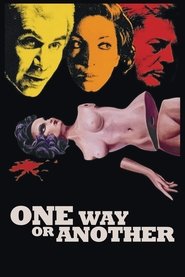 Set during a retreat of Christian...
Set during a retreat of Christian...One Way or Another 1976
Set during a retreat of Christian Democrat politicians who practice spiritual exercises together, it is an allegory of corrupted power. Disturbing, claustrophobic settings are the background to a series of mysterious crimes.
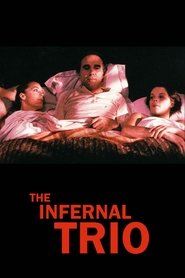 Marseilles 1919 Georges Sarret is a distinguished...
Marseilles 1919 Georges Sarret is a distinguished...The Infernal Trio 1974
Marseilles, 1919. Georges Sarret is a distinguished and respected lawyer, recently honoured for his services in the First World War. He takes as his lover Philomène Schmidt, a young German woman, who has just lost her job and home. To enable Philomène to remain in France, Georges finds her a husband – who dies conveniently of natural causes a month after the wedding. Georges repeats the trick with Philomène's sister, Catherine – marrying her off to an old man who dies suddenly so that the scheming trio can profit from his life insurance. When an accomplice in the scheme, Marcel Chambon, threatens to blackmail them, Georges and his two lovers have no option but to kill him and his mistress...
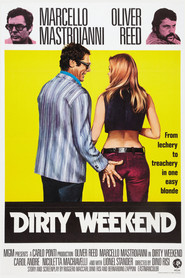 A man and his mistress have...
A man and his mistress have...Dirty Weekend 1973
A man and his mistress have just taken off for a weekend romp when they're kidnapped by a trio of bank robbers. They wind up becoming media "stars" as police and reporters follow them. They all wind up at the beat-up shack of a cranky old codger, with the police surrounding them and the robbers threatening to kill everybody.
 Senator Pupis feels a strong and...
Senator Pupis feels a strong and...The Eroticist 1972
Senator Pupis feels a strong and uncontrollable urge to grab women's bottoms, a habit than can lead to embarrassment, especially if the woman in question is head of another state and the occasion a state visit. In his desperation Pupis turns to the clergy for spiritual and psychological help.
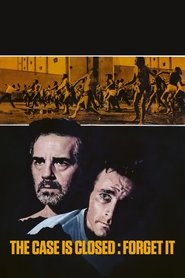 Arrested on suspicion of a hit...
Arrested on suspicion of a hit...The Case Is Closed, Forget It 1971
Arrested on suspicion of a hit and run, a succesful architect is put in prison awaiting trial or release. Whilst there he witnesses the grim reality of life behind bars: corrupt staff, corrupt inmates, an inhuman judicial system and the power of the Mafia.
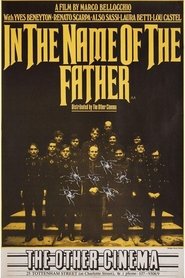 In 1958 Angelo a rich and spoiled...
In 1958 Angelo a rich and spoiled...In the Name of the Father 1971
In 1958 Angelo, a rich and spoiled boy, enters a religious school, where students are tired of its vice-rector, and the strict rules and old-fashioned teaching methods of priests. Soon, Angelo exerts strong leadership among his peers and incites turmoil among them, helped by intellectual Franco and shy Camma. They expel the prefect from the school, organize a Grand Guignol show, and disappear the corpse of an old professor.
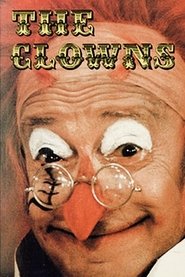 Fellini exposes his great attraction for...
Fellini exposes his great attraction for...The Clowns 1970
Fellini exposes his great attraction for the clowns and the world of the circus first recalling a childhood experience when the circus arrives nearby his home. Then he joins his crew and travel from Italy to Paris chasing the last greatest European clowns still live in these countries. He also meets Anita Ekberg trying to buy a panther in a circus.
 Roberto a shy law student in...
Roberto a shy law student in...Il Sorpasso 1962
Roberto, a shy law student in Rome, meets Bruno, a forty-year-old exuberant, capricious man, who takes him for a drive through the Roman and Tuscany countries in the summer. When their journey starts to blend into their daily lives though, the pair’s newfound friendship is tested.
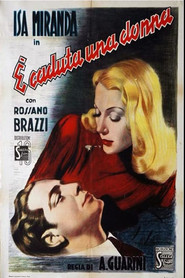 In Milan an unwed mother forced...
In Milan an unwed mother forced...È caduta una donna 1941
In Milan, an unwed mother, forced to flee from her town because of the scandal, meets a doctor who falls in love with her and marries her. But the couple's relationship breaks down almost immediately: the husband is unable to leave behind the woman's past and can not stand a son not his. So Dina, in an attempt to readjust the rapport, entrusts the child to the care of the mother of her seducer (meanwhile deceased). But the sacrifice is beyond her strength, and she's soon taken by the irresistible desire to get her child back: in damp and foggy night, on her way to the station...
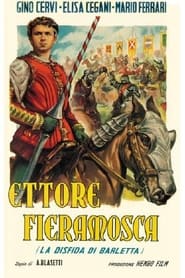 ETTORE FIERAMOSCA was based on a...
ETTORE FIERAMOSCA was based on a...Ettore Fieramosca 1938
ETTORE FIERAMOSCA was based on a widely-read literary action epic by Massimo D'Azeglio, published in 1833. Translated to the screen in 1938 by the most important director of the Italian fascist period, Alessandro Blasetti, it was intended to boost current patriotic fervor and pride in the Italian nation, and it contributed to a revival of Italian nationalism.

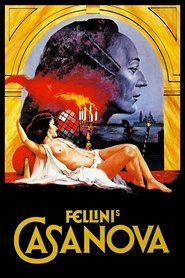 Casanova is a libertine collecting seductions...
Casanova is a libertine collecting seductions... Released from the orphanage at the...
Released from the orphanage at the...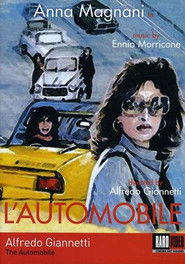 An exprostitute feeling an emptiness in...
An exprostitute feeling an emptiness in... The film consists of twelve episodes...
The film consists of twelve episodes...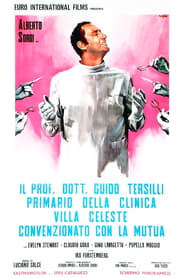 Story of an ambitious young doctor...
Story of an ambitious young doctor...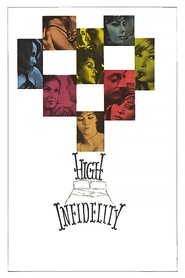 Four different directors present lighthearted stories...
Four different directors present lighthearted stories... A lonely teenage boy living isolated...
A lonely teenage boy living isolated...